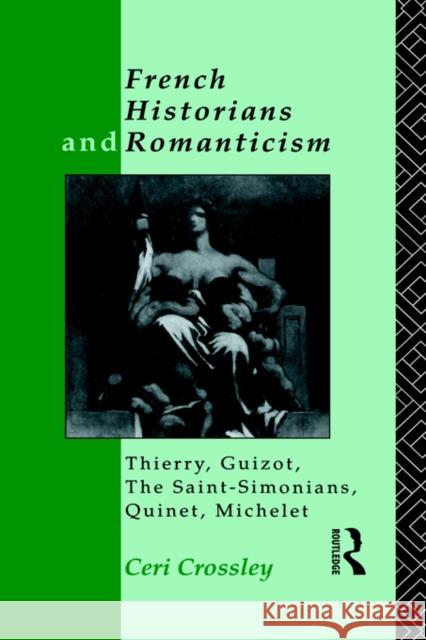French Historians and Romanticism: Thierry, Guizot, the Saint-Simonians, Quinet, Michelet » książka
French Historians and Romanticism: Thierry, Guizot, the Saint-Simonians, Quinet, Michelet
ISBN-13: 9780415021180 / Angielski / Twarda / 1993 / 296 str.
French Historians and Romanticism: Thierry, Guizot, the Saint-Simonians, Quinet, Michelet
ISBN-13: 9780415021180 / Angielski / Twarda / 1993 / 296 str.
(netto: 669,47 VAT: 5%)
Najniższa cena z 30 dni: 654,86 zł
ok. 16-18 dni roboczych
dostawa w 2025
Darmowa dostawa!
In France, history is central to cultural life. The discourse on the past is a vital component of the discourse on society and politics in general. This reflects the impact of the Revolution and its still unresolved consequences. The ensuing French preference for historical modes of explanation needs to be viewed within a broader perspective: specifically, set within a tradition of historical writing which developed in the first half of the 19th century. That is what this book does. The Romantic period saw the promotion of history as a grand discourse of legitimation. The French Revolution had problematized the relation to the past while at the same time setting the agenda for modern political culture. The 19th century set out to appropriate the past as a way of explaining the emergence of new forms of consciousness and political arrangements. Ceri Crossley examines the ways in which the past was rediscovered, retrieved and represented in post-revolutionary France by Thierry, Quinet and many others. He concentrates on the Restoration and July Monarchy. The Romantic historical project is situated in relation to broader debates concerning individualism, authority, violence,











